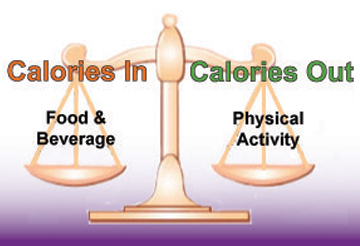Why is tracking Macros better than counting calories for weight loss?
If you read my previous article “What’s all this talk about Macros?” then you have a good understanding of what the macronutrients are, and where they come from. The macronutrients are protein, carbs, and fats. I have recently had a few of my clients ask me why it’s better to track your macros rather than just counting calories alone. That is a great question! Technically, if you are tracking your grams of each macronutrient, then you can still figure out how many calories you are consuming. Calories are actually made up of macronutrients. Each macro contains a certain number of calories per gram: 1 gram of protein = 4 calories, 1 gram of carbs = 4 calories, 1 gram of fat = 9 calories.
Everyone knows what calories are. This is something that a lot of people look at and can get freaked out over. Do not be afraid of calories, they are energy and fuel for your body, they are essential! Calories are important and the amount of calories that you consume is directly proportional to the amount of weight that your body will lose or gain. If you want to lose weight or body fat you need to put yourself into a calorie deficit, if you want to gain weight or gain muscle, you need to put your body into a calorie surplus. Simple enough, right?

Each macronutrient plays a different yet vital role within your body, no matter what anyone trying to sell books tells you. Proper manipulation of these macros can help you reach your goals a lot faster than counting calories alone. You will also feel more satisfied, and less hungry/deprived!
First I will talk about protein. From my experience, I have found that many americans are not eating very much protein. Especially if they want to lose weight. Protein plays a huge role in your diet. Protein will help preserve lean muscle tissue if you are in a caloric deficit, and help build muscle if you are trying to bulk up. It also helps control your appetite better and will keep you satisfied for longer periods of time.
Something that I love about protein is its high thermic effect, meaning it takes the body more calories to digest a gram of protein than any other macronutrient. This is part of the reason high protein diets are so effective for weight loss. Not only will it keep you full, but the more protein you eat, the more calories your body burns.
Most people are lacking in adequate protein intake. Protein intake needs to be high enough to provide you will the benefits listed above, but not so high that it takes away from the benefits of other macronutrients.
Fat is also important in the right amount. Yes, it’s easy to go overboard on fats with things that seem healthy like nuts, cheese, and other whole foods and “good fats”. The truth is that fat is good, but it has to be measured and tracked so that you are not eating more than you can utilize.
Fat assists with brain function and vitamin absorption, and is important for hormone regulation.
Carbohydrates are feared by many, especially with the keto craze that I have seen lately. Technically yes, carbohydrates are the only macronutrient we can live without. But they also make up some of the more delicious foods out there and just make life tastier in general so why would you want to live without them.
More importantly though, carbohydrates provide the fuel for life! They just make us feel good and happy, as well as give us energy. When consumed, carbs are stored in the muscles as glycogen and used as energy during a workout or after to help the body recover.
The body can still produce the essential pieces needed to fuel workouts without carbs, but not nearly as efficiently. Your overall energy levels during a workout are important because of the large amount of physical exertion needed to lift weights to maintain or increase muscle mass.
Everyone’s carbohydrate needs are going to be different. Athletes and more active individuals NEED more carbs than people who are sedentary and not as active.
There are no absolutes when it comes to counting macros. Different people are going to have different needs. Just because someone posted on an internet forum that they got shredded eating 400g of protein and no carbs every day doesn’t mean you should do that too. Don’t hesitate to reach out to me and I can help you determine what macro ranges are right for your body and your goals. There is no “one size fits all” formula to counting your macros.
My next blog will explain HOW to measure and count your macros.
Sarah Williams

Hi! I could have sworn I’ve been to this blog before but after going through
a few of the articles I realized it’s new to me. Anyhow, I’m certainly
delighted I came across it and I’ll be bookmarking it and checking back regularly!
I like the helpful info you provide in your articles. I will bookmark your weblog and check again here regularly. https://php665.com/
Hi! Someone in my Facebook group shared this
website with us so I came to check it out. I’m definitely loving
the information. I’m bookmarking and will
be tweeting this to my followers! Terrific blog and superb style and design.
Awesome Shawn!
I appreciate it and I’m glad you found it helpful! Please feel free to reach out if you have any questions!????
Hello. impressive job. I did not anticipate this. This is a impressive story. Thanks!